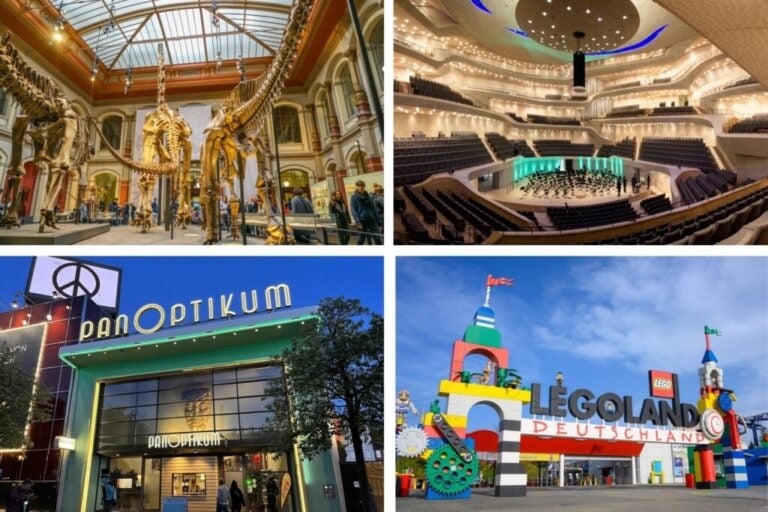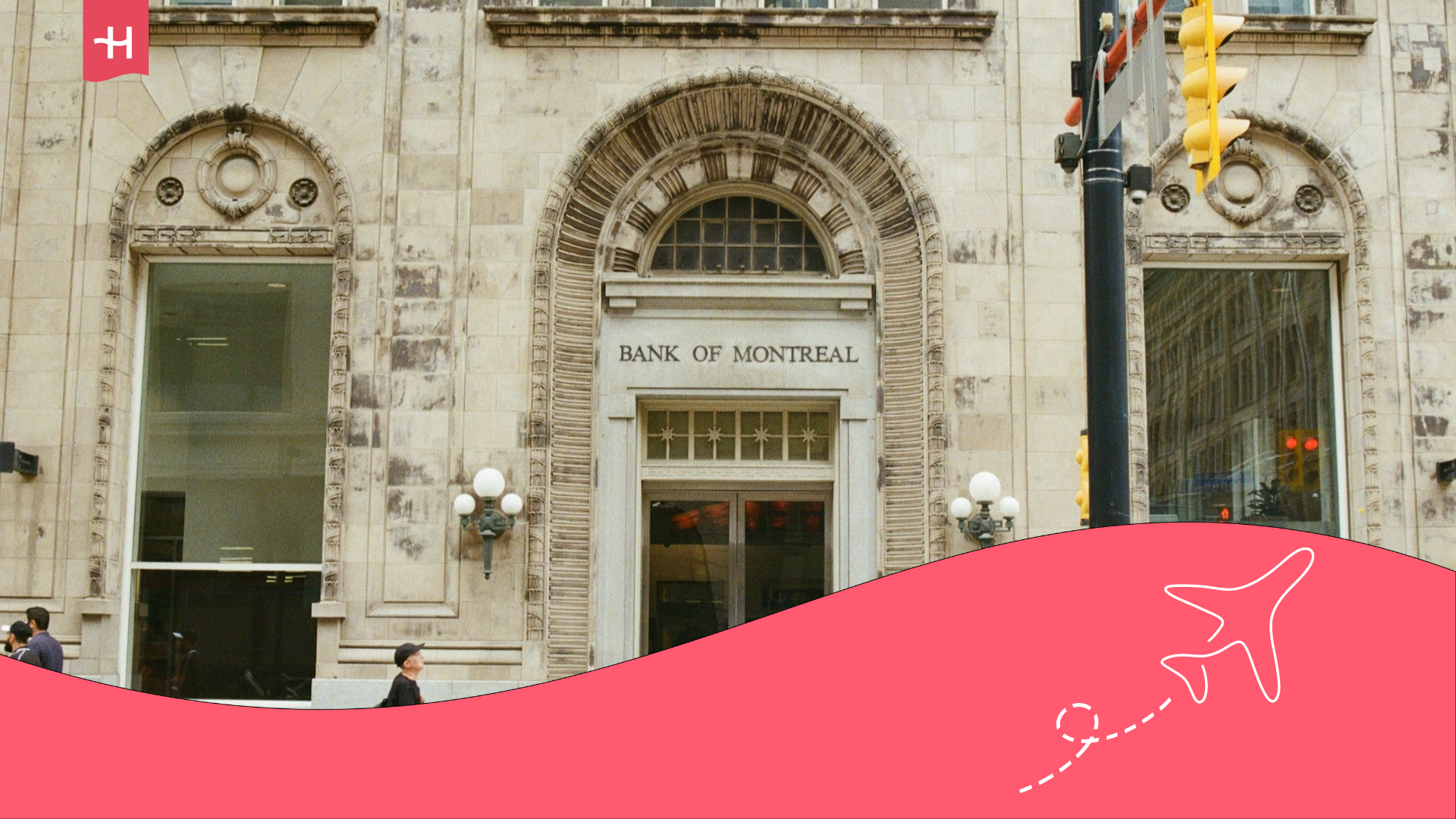Cost of living in Germany: Food, transport, and more
Get the latest 2025 cost of living in Germany. Discover updated prices to plan your budget and lifestyle with confidence.
The cost of living in Germany sits around the European average, though in major cities like Munich or Berlin, prices are higher than in less touristy areas. If you’re considering a new life in this country, you need to calculate the costs of accommodation, transport, food, healthcare, internet connectivity, and leisure.
Once you know all this information we’ve gathered for you, you’ll decide whether Germany is the best country to settle in and start a new life. Here are updated 2025 prices in both dollars and euros.
Average accommodation costs in Germany
The cost of living in Germany for rent sits mid-range compared to other European cities. For instance, Munich is cheaper than Amsterdam, Paris, or Rome, but pricier than Madrid, Vienna, or Budapest.
With this in mind, you can choose between traditional rentals, hotels, colivings, or Airbnb. These are approximate rates, depending on location and season:
- Mid-range hotels: the nightly price in a mid-range hotel ranges between $100–150 (€95.00–143).
- Furnished apartments: the monthly rent for a traditional 85 m² furnished flat is about $1,580 (€1,507).
- Colivings: a room in a coliving space usually costs less than a flat, between $800–1,200 (€762–1,143) monthly, such as Vonder or Werk 1 in Munich. This type of accommodation is popular among digital nomads or entrepreneurs looking to live and work remotely in one place.
- Airbnb: ideal for short stays, the average cost of a full flat on Airbnb is about $121 (€115) nightly.
Food costs in Germany
Food prices are very similar to other European countries, but to calculate the full cost of living in Germany, we need to list supermarket items in typical German stores like Aldi, Lidl, Netto, Kaufland, or Penny:
- Pasta: One-kilo pack for $3.14 (€3.00)
- Eggs: a dozen for $3.36 (€3.21)
- Milk: one-litre carton for $1.15 (€1.10)
- Beef: one kilo for $18.01 (€17.19)
- Chicken: one kilo tray for $13.39 (€12.78)
- Chocolate: A 100-gram bar for $1.05 (€1.00)
- Coffee: one kilo pack for $13.14 (€12.41)
If you fancy eating at a local restaurant like Bratwursthäusle Nuremberg, one of the oldest in the city founded in 1313, this would be the cost of a daily menu including breakfast, lunch, and dinner. Take note:
| Type of Meal | Menu | Price |
|---|---|---|
| Breakfast | Bauernfrühstück: potatoes, onion fried in butter, bacon, and scrambled eggs. | $8.00–12.00 (€7.64–11.45) |
| Food | Nürnberger Rostbratwurst: small grilled pork sausages served with sauerkraut and potato salad. | €9.54-14.32 ($10.00-15.00) |
| Dinner | Rundstück warm: bread roll filled with roast pork, gravy, and pickles. | €6.68-€9.54 ($7.00-$10.00) |
Example of a typical German menu.

Transport prices in Germany
This country is recognised for its efficient, fast, and safe transport, with an extensive network of highways and roads in excellent condition. The cost of living in Germany for transport is similar to the European average. Let’s see the different options:
Public transport
Germany offers buses, trains, metros, and trams as public transport. Prices range from $4.08 (€3.90) for a single bus or metro ticket, up to $51.30 (€48.96) for a regional train ticket, or $61.80 (€59.07) for two people with unlimited use over 24 hours.
The German government launched the Deutschlandticket for $51.34 (€49.00), allowing unlimited travel nationwide on metros, trams, buses, and S-Bahn for a fixed monthly price.
Bike rentals
You can rent a bike in Germany, as it’s popular among residents, perfect for short trips to work or university, reducing CO2 emissions. Rental companies include Bike Colonia from $14.67 (€14.00) or Viator from $20.96 (€20.00) per day.
Taxi and Uber
If you need a taxi or Uber, both options are available in Germany. As in other European countries, Uber is cheaper. For example:
- Taxi prices: a seven-kilometre ride in Berlin costs about $21.55 (€20.57).
- Uber prices: the same ride costs between $8.60–11.83 (€8.21–11.29).
Fuel and energy
For the cost of living in Germany, fuel is a significant monthly expense. The average petrol price is $1.67 (€1.75) per litre at the time of writing, though it may vary. For an electric car, charging costs around $0.29 (€0.30) per kWh.
New vehicle and driving insurance
If you want a new car, a popular model is the Volkswagen Golf 1.4 90 KW at about $25,901 (€27,161), depending on features and extras. To drive, you need compulsory liability insurance, available from $300 (€286), with extra cover from $200 (€190.88).
Healthcare costs in Germany
Since 2009, every resident, local and foreign, must hold health insurance, as access to public healthcare requires affiliation with the German mandatory scheme.
Healthcare costs in Germany are high, so we recommend health insurance for foreigners.Basic services like consultations or emergencies can be difficult to afford without proper cover. Here are sample German tariffs:
| Services | Approx. price in dollars |
|---|---|
| Hospitalisation (per day) | €286.32-€477.21 ($300-$500) |
| General medical consultation | €47.72-€95.44 ($50.00-$100) |
| Consultation with a specialist | €95.44-€190.88 ($100-$200) |
| Diagnostic test (e.g. MRI) | €477.21-€954.41 ($500-$1,000) |
| Outpatient surgery | From $2,000 (€1,908) |
| Monthly medication | €28.61-€76.29 ($30.00-$80.00) |
Main medical service fees in Germany.
Internet and call plan prices
To enjoy good internet in Germany, you need reliable home and mobile plans. Tech costs here are similar to the European average, with several providers available:
- 1&1: 50 MB home connection from $31.42 (€29.99)
- skyDSL: satellite internet from $20.85 (€19.90)
- Fraenk: 6 GB with unlimited calls and texts in Germany
- Ortel Mobile: 10 GB for $15.71 (€14.99) monthly
If these options feel limited, we recommend Holafly Connect plans for professional travellers needing powerful 5G in over 170 destinations without changing SIMs. Choose your monthly subscription:
| Subscription | Details | Rate |
|---|---|---|
| 10 GB Plan | Ideal for short trips or basic use. | $40.93 (€39.90) |
| 25 GB Plan | Perfect for video calls, teamwork, and file downloads. | $51.19 (€49.90) |
| Unlimited Plan | The best option for remote workers and heavy users. | $67.90 (€64.90) |
Holafly Connect plans features.
Important: If you are a frequent traveler and want to stay connected without worrying about expensive roaming or looking for a new SIM at every destination, Holafly’s subscription plans are for you. With a single eSIM, enjoy internet in more than 160 countries for a fixed price and no surprises on your bill. Travel without limits and connect easily and securely! 🚀🌍

Leisure costs in Germany
If you want to explore the country and visit famous spots, one of the best ways to reduce leisure costs in Germany is buying a tourist card from $25.00 (€23.86). This way you get benefits like free public transport, museum discounts, shows, restaurants, and attractions. Here are other activity prices:
- Cinema: entry for $15.00 (€14.32).
- Zoo: entry for $25.00 (€23.86).
- Theatre: tickets from $40.00 (€38.18).
- Streaming platform: subscription for $15.00 (€14.32) monthly.
- Cable TV service: monthly subscription from $50.00 (€47.73).
- DDR Museum Berlin: entry for $14.00 (€13.36).
- Panoptikum: Hamburg’s wax museum for $10.00 (€9.55).
- Legoland Discovery Centre: Oberhausen entry for $33.00 (€31.54).
- Elbphilharmonie: entry from $23.00 (€21.99).

Based on everything we’ve seen, the cost of living in Germany is mid-range compared to other European destinations, ranking ninth. The average monthly spend is about $2,305 (€2,200).
On the other hand, the German minimum wage is about $2,266 (€2,161) after tax, which is just enough to cover the analysed aspects. If you work as a specialist earning more, you could live more comfortably in Germany. The decision is yours — are you moving to Germany?





 Language
Language 


















 No results found
No results found






